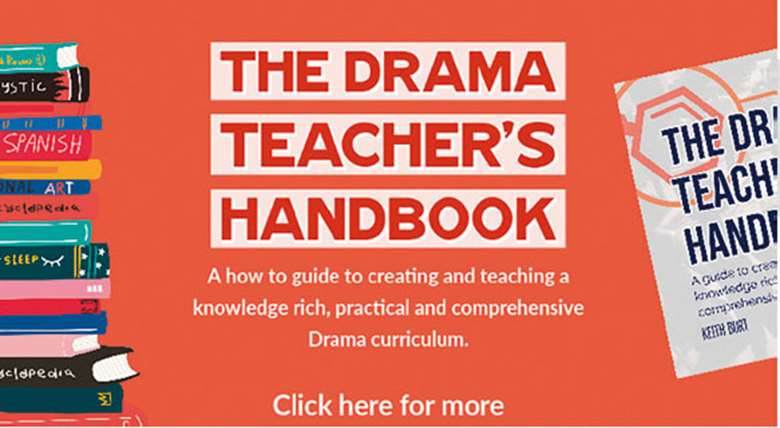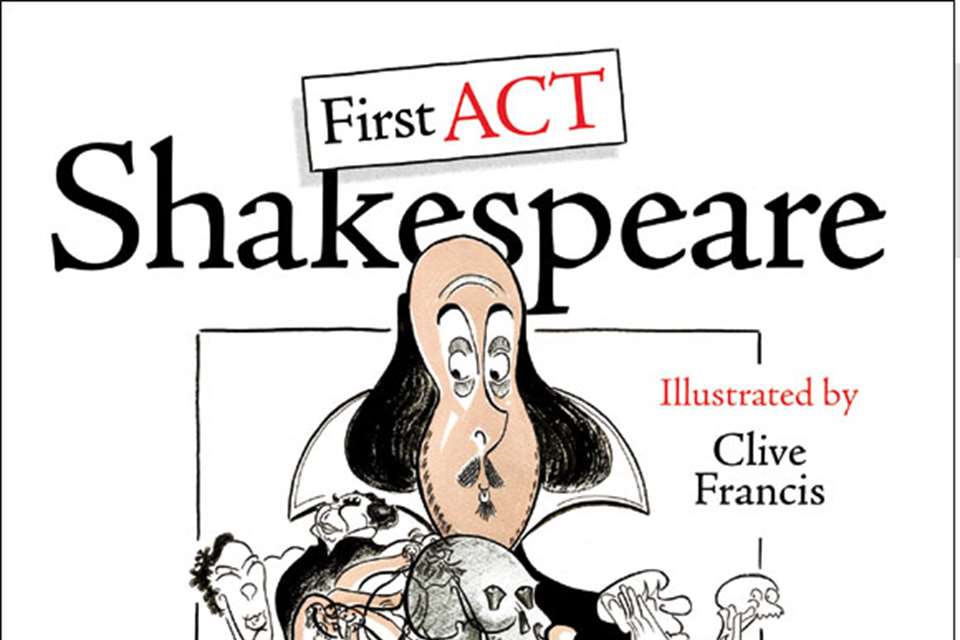Book Reviews: The Drama Teacher's Handbook
David Porter
Wednesday, September 1, 2021
A happy mix of theory and practice, down to earth, and which makes you think about your teaching and curriculum.

Like Autolycus, drama teachers are ‘snappers up of unconsidered trifles,’ finding drama ideas all over the place, in every corner, any hour of day and night. Now we have a fresh source that brings together stimulus and drama learning material in an accessible and practical way.
The Drama Teacher's Handbook by Keith Burt comes from his experience over twenty years in educational drama in its many guises. With a passion for the power of drama not just in secondary schools but in the lives of young people, Burt tackles the processes of teaching about and through drama.
After discussing how the theory of ‘knowledge rich curriculum’ fits into Drama and practical ways to implement it, he unpicks ‘knowledge’ (factual, conceptual, procedural and meta-cognition) which would be useful in a chat with senior management about expanding the drama department.
He covers skills and memory and those perennial debating topics: ‘what is drama?’, ‘what is theatre?’ and ‘what is the subject of drama?’ For him, it's not about communication, but learning about the structure of drama and the vast subject of theatre.
When did you last evaluate the robustness and effectiveness of the schemes you teach, year group by year group? Each chapter ends with ‘Reflection, Response and Resource.’ Drama teachers and NQTs rarely have time to reflect on their work and ideas, so this book is a welcome tool to the busy practitioner.
Burt poses timely questions to hold your own work to account. What do you want to teach; why do you want to teach it? Did you enjoy teaching it? Why did you enjoy it and if not, why not? Did the students enjoy it? Why?
In education, as elsewhere, everyone loves acronyms and tags. For Burt, Theatre in Education is a DREAM (direct address, real audience to plan for, educational purpose, audience participation, message at the end). It's hard to argue with that.
Summarising effective questioning, he discusses the whole learning process from which we can better shape our material and lessons. He addresses time-management, collaboration, adaptability and problem solving.
He expands on SMSCD and that drama essential, character development, including accepting failure. Also, there are 10 steps towards a curriculum for you; a chapter on assessment; and a good grading tool.
The handbook is available at burtsdrama.com Burt's resources are free to download at burtsdrama.com/handbookresources and the password is a clever iloveteachingdrama



